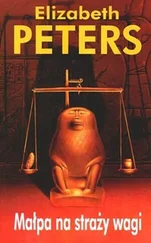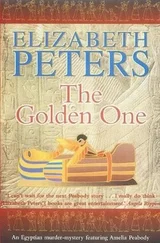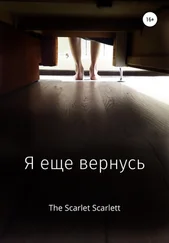I let Caesar out and let him in, and fed him, and let him out and dried him off. Then I settled down with the mail and a well-deserved glass of wine.
I opened the package first, noting, with only mild interest, that I was not the first to open it. German customs, I assumed. The stamps were Swedish, the address was in neat block printing, and the return address, required on international parcels, was that of a hotel in Oslo.
Swedish stamps, Oslo address, anonymous printing – that should have warned me, if there were anything in this business of premonitions. There isn’t. I was still only mildly curious when I opened the box. But when I saw the contents – one perfectly shaped crimson rose – my blood pressure soared.
It had been over a year since I had seen John – almost three years since the red rose had been mentioned. But I had good cause to remember it.
‘One red rose, once a year.’ He hadn’t said it, I had. At Leonardo da Vinci Airport, as I was leaving for Munich and John was leaving for parts unknown, with, as he quaintly put it, the police of three countries after him. John was another souvenir of that Roman adventure, and he had turned out to be even more inconvenient than Caesar. I had seen him once in the intervening time. We had spent three days together in Paris. On the third night he had departed out of the window of the hotel room while I slept, leaving behind a suitcase full of dirty clothes, an unpaid hotel bill, and a tender, charming note of farewell. My fury was not mitigated when I learned, from a sympathetic but equally infuriated inspector of the Sûreté, of the reason for his precipitate departure. They had waited until morning to close in on him, feeling sure – said the inspector, with a gallant Gallic bow – that he would be settled for the night.
The police wouldn’t tell me what it was he had stolen. I didn’t really want to know.
John is a thief. He specializes in the objects I am paid to guard and protect – gems, antiques, art objects. He isn’t a very successful thief. He’s smart enough, and God knows he’s tricky, but he is also a dedicated coward. When he hears the heavy footsteps of cops or competitors thundering towards him, he drops everything and runs. That may not seem like an attractive quality, but it is actually one of John’s more appealing traits. If everybody were as reluctant to inflict or endure pain, there wouldn’t be any wars, or muggings of helpless little old ladies.
He has the most atrophied conscience of anyone I know. He also has . . . But perhaps I had better not be too explicit, since I want this book to appeal to a family audience. When he’s engaged in what he does so well, one may be momentarily bemused into forgetting his true nature, but one would have to be a damned fool to let him con one at any other time.
I picked up the rose and tried to tear the petals off. As I should have realized, it was one of those silk imitations, quite sturdily constructed. I was reaching for the scissors when I saw something else in the box.
It was a blue imitation leather travel folder containing a plane ticket and hotel reservation slip. The hotel was in Stockholm. The ticket was to Stockholm. I had a reservation on a plane leaving in ten days’ time.
What I had was a bucket of squirming worms. What was he up to this time?
I said it aloud. ‘What are you up to this time, you dirty dog?’ Caesar, sprawled across my feet, took this for a deliberate, undeserved insult. He barked indignantly.
It may have been an omen, who knows? I had both hands on the flimsy paper layers of the ticket, ready to rend it apart. By the time I had reassured Caesar and apologized, I had had a chance to reconsider.
A rose is a rose is a rose, and a ticket is a ticket, and a ticket is a hell of a lot more useful than a rose. My mental excursion into poetry reminded me of another verse, that touching little lyric of Dorothy Parker’s, in which she mourns,
Why is it no one ever sent me yet
One perfect limousine, do you suppose ?
Ah no, it’s always just my luck to get
One perfect rose.
I felt sure John was also familiar with that gem of American literature. A plane ticket doesn’t measure up to a limousine, but Dorothy would have preferred it to a rose.
Rain sloshed at the window. I sneezed.
Sweden. The land of my ancestors. (Some of them, anyway.) Roots. Stockholm, the Venice of the North, its canals gleaming under a warm spring sun . . . No, there was too much water in that image. The stately palaces and quaint old streets of Stockholm shining in the warm spring sun . . . As I contemplated the mental picture, the sun shone brighter and brighter. I would use that ticket. And when John showed up, I would spit right in his baby-blue eyes. The Paris hotel bill had set me back almost two hundred bucks.
I looked into the bottom of the box, hoping for something else that had actual cash value – a cheque (though it would probably bounce) or some trinket stolen from a museum, such as a diamond necklace (though it would undoubtedly be a fake). There was something else in the box – a single sheet of paper. Printed on it, in the same hand as the address on the package, were two words. And these were they: WIELANDIA FABRICA.
I sat staring at the paper for so long that Caesar thought I had passed out and began nervously licking my feet to restore me to consciousness. The only thing that will distract Caesar from this activity, which he enjoys for its own sake, is a bone. I went and got him one, blundering into doorframes and furniture because my eyes were glued to that exasperating message.
I knew what it meant, of course. In case you don’t, I will tell you, because it isn’t fair to plant clues based on esoteric knowledge. The explicit translation of the phrase should be obvious to anyone with a rudimentary knowledge of Latin – ‘Wayland’s work.’ But, you ask, who was Wayland?
I first encountered him as Wayland the Smith, in Puck of Pook’s Hill , when he forged a dark grey sword with Runes of Prophecy on the blade – a sword that sang when it was pulled from the scabbard. Kipling knew his legendry; he was aware that Wayland had come down in the world since he entered England as a heathen god whose altars reeked with blood and burning. The Norse sagas tell his history; he was a divine smith, like the Roman Vulcan, and, like Vulcan, crippled by malice. When writers wanted to describe a particularly fine piece of craftsmanship they had only to label it WELANDES WEORC. Centuries later, Latin epics were using the same phrase. Wayland’s enchanted blades had powers beyond those of mortal steel, and his hilts were of gold, gem-encrusted.
Scandinavia, fabled goldsmith, jewel thief . . . It made an odorous little syllogism, as neat and as crazy as one of Lewis Carroll’s exercises in logic. John was on the track of a Viking treasure. Or rather, that is what John wanted me to believe. I didn’t believe it. If he really intended to commit grand theft, I was the last person to whom he would broadcast his intentions. The message was just a lure, a juicy chunk of bait – and a fairly ingenious one. My interest was definitely aroused.
I checked the travel folder again. The plane ticket was one-way, the cheapest tourist class. The hotel room had not been paid for in advance, only confirmed. Now I knew I was going to Stockholm, if only for the pleasure of telling that skinflint what I thought of him and his cut-rate romantic gestures.
Schmidt protested volubly when I told him I was taking my vacation. He didn’t object to the short notice, like any normal boss. The thing that bothered him was that he would miss his weekly instalment of the dirty book I was writing. I had been working on the damned thing for three years. It began as a semi-serious attempt to make some money, but it had become a joke; the manuscript already filled two big cartons, and no end was in sight. I could have wound it up at any point; one merely needs to decide how many times the heroine has to be abducted and assaulted before satiety sets in. But Schmidt was hopelessly hooked on Rosanna’s adventures. I kept feeding him chapters like Scheherazade with the sultan.
Читать дальше







